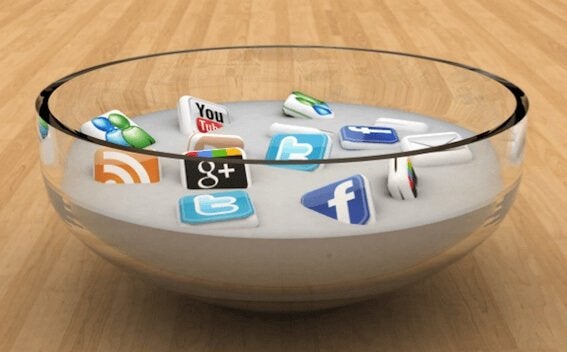American writer Jake Reilly was the first to talk about social media rehab. Initially he did an experiment to understand what would change in his life without these digital content, and soon the experience became a very famous article that was launched under the name “Obesidade e Dieta Digital”, in free translation in Portuguese.
It all started when Reilly realized he couldn’t stay off the internet for a minute, started paying attention and accounting for his actions, and noticed he was sending more than 1,500 emails in a month. His Twitter posts exceeded the monthly number of 250 and, at the same time, he spoke on the phone for more than 900 minutes, that’s when he thought about doing a rehab from social media.
- “Twitter is a good place to tell the world what you’re thinking before you’ve had a chance to think about it.
- “Chris Pirillo.
Jake Reilly also talked about the concept of “digital obesity. “He even created a formula to check for excess, such as the scale that indicates excess weight. It was a point system that included the number of devices a person uses, the number of times they access the Internet daily, and the number of messages sent, plus other indexes. In the end, if the amount exceeded a certain score, the person was called e-obese.
Without reaching these extremes, each person can check their internal thermometer, which also indicates if there is an excess. Some of the measures that can be observed are the stress and anguish of being constantly with twenty windows open on the computer, looking at them all. at the same time with the feeling that there is something I should see and that it is not. Of course, there’s no way to see all the content available on social media, and social media detoxification can make everyone think and draw conclusions about their own, and these can be similar to what Jake Reilly found, as well as many others who have tried to do so. Same experience afterwards. Then we’ll see them.
We don’t realize how tense we can be when we’re under the influence of Internet content all the time. This is because there is a lot of information and the brain is on high alert. The feeling is that something is happening every second and there is an expectation of what will happen next. But what’s going to happen is just one more article, one more story, one more photo.
When we detoxify from social media for at least 30 days, the level of brain activity decreases. At first there is a great tension similar to that caused by the withdrawal of a drug. However, over time, you may feel calmer, more at peace and with greater inner well-being.
The Internet gives the impression that thousands of important things are happening to us at the same time in the world, we get to feel that if we disconnect for a long time we will lose something important and that it will leave us off social networks. Dynamic.
But we can easily prove the falsehood of this thinking by doing a rehabilitation on social media. Most of the content circulating on the network and on the web is absolutely irrelevant. More of the same, saying in a simplified way. If we really wanted to. to be informed, we could log in once a day, if we did, to be aware of what happened that day.
Friends and online subscribers are, for the most part, a great illusion. Just because someone likes a message from us doesn’t mean they’re really a friend. When we are immersed in the networks, however, it seems that our friendships are those of our list of followers.
When we detoxify digital content, we find that it’s not quite like that, if we disappear from networks, we also disappear from the lives of many people, who invite other virtual friends to love their photos. For those of us who follow a diet, we talk to those with whom we have real connections again, having more time to cultivate what is actually a gift to us.
That’s why social media is addictive, we don’t realize it, but when we’re connected our brain releases small amounts of dopamine, and that’s where the danger is, this is the beginning of all kinds of addictions, we want to get there. come back more and more times, receive more and more online interactions, get back to the same feeling.
Another thing that happens to us when we are always connected to the Internet without even realizing it is that we end up immersed in the dynamic of having to do something all the time, we never shut up. We’re never without stimuli.
It deprives us of something wonderful, which is the pleasure of having moments to do nothing, without realizing it we begin to fear inactivity, this is a serious thing, because it is precisely in those moments that we do nothing that generates the best of us. ideas and deepen existing ideas. The great achievements of thought were often generated in moments of leisure.
It is very good to disconnect as soon as possible, it is not practical to allow the Internet to direct or replace our lives, it is clear that social networks bring us many possibilities, but we cannot set aside real life, which coexists with everyone. our senses and one that has much more weight and relevance to true happiness.

